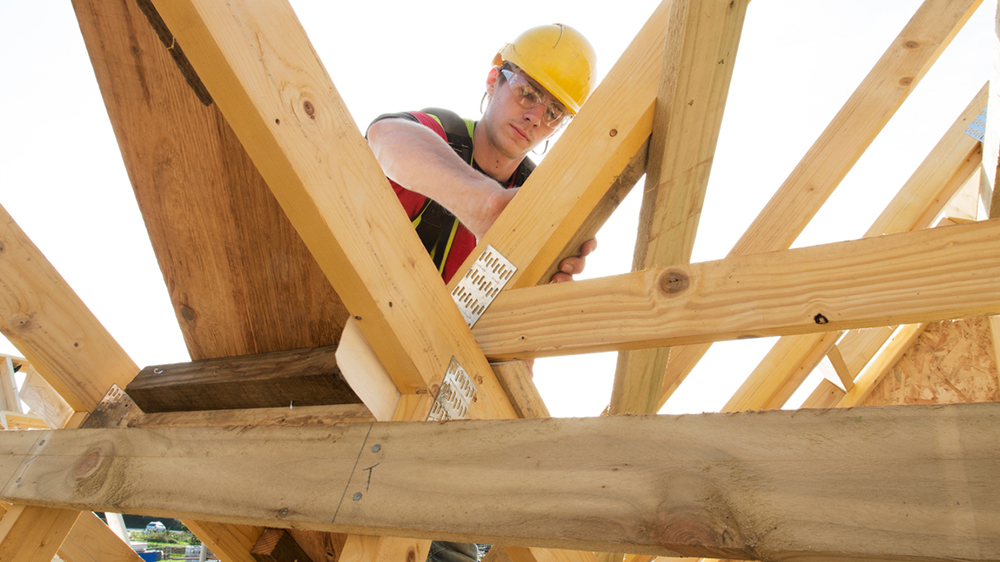The first thing my real estate agent impressed on me regarding my new-construction home in Atlanta, GA, was to hire an inspector to come back at various stages of construction to review the progress. But just as important as those periodic inspections is getting a builder’s warranty for your new home. My builder offers five-year or 20-year warranties that cover workmanship, garage doors, heating and air, plumbing and electrical, light fixtures, roofing, structural elements, and more. That’s enough coverage for me. But if I decide I want more coverage, such as for appliances or the garbage disposal, I can buy my own additional warranty closer to move-in time — and I just might! Here are three reasons why all new-home construction should come with a warranty.
1. Home warranties protect against a variety of problems
Your new home passed inspection and was deemed fit to live in, but that doesn’t mean you won’t experience any problems. Shamanda Burston, a North Carolina agent, lists five typical problems that arise from new-home construction, all of which a warranty could cover: floor creaks due to structural components, cracks in fixtures, problems with pipes or septic and electrical systems, defective materials (such as the seals on windows), and landscaping issues. “Purchasing a home warranty for a new-home construction provides added financial protection and peace of mind,” Burston says.
2. Problems aren’t always visible when you first move in
When you’ve lived with something (or someone!) for a while, it’s natural to notice things that weren’t apparent at first glance. It’s only after driving a car over time that you notice those unsettling sounds when you brake, or that the love of your life regularly hits the grocery store express lane with more than 10 items. (How rude!) The same goes for new construction.
“Often, structural issues don’t become apparent until after the work has been completed and the house has been lived in for a while,” says Max Robinson of KBHomeSpecialists. And if you do notice later that something’s amiss, you’ll be hard-pressed to get the builder to do anything … unless you have a warranty. “If you have a home warranty, the builders would be required to return and finish their work or provide the homebuyer with a refund for the work that they carried out,” Robinson says.
Of course, you’ll need to read your warranty agreement to determine just what the builder’s obligations are, what your maintenance responsibilities entail, and what the warranty covers. Liane Jamason, a St. Petersburg, FL, agent, points out that a builder’s warranty might not cover everything (a pool is a common exception), so you may have to buy a separate warranty in addition to the builder’s warranty if you’re looking for complete coverage. Appliances, which may have their own one-year warranty, often aren’t covered either, Jamason adds.
3. New-construction homes can be rushed
Ideally, your builder will treat your project as if they were building their own home. But just as you might miss something or take a shortcut at work after a long day, so can your builder. In addition, new materials need time to settle (after the foundation is poured, for example, it can take two to four weeks to cure), and builders with aggressive schedules might feel pressured to move forward earlier than they should.
It’s also possible that your builder subcontracts work to people who don’t specialize in new-home construction. Inexperienced subcontractors might omit steps that more seasoned builders wouldn’t, such as blocking off vents to the HVAC system, which keeps construction dust from clogging the unit. “Maybe the water heater wasn’t installed correctly or the wiring of the home was not completed correctly,” says David Ranish, a Laguna Beach, CA, agent. For these cases, it’s best to have a builder’s warranty.
Types of builder’s warranties
Now that you know why it’s best to get a warranty for your new home, how do you go about getting one? Step one: Ask your builder (before work starts!) if a warranty is included. “A lot of times, the new-home builder will pay the [warranty] fee for the buyer,” Ranish says. If not, you can buy your own warranty for a few hundred dollars, he says.
Warranties are usually divided into different terms, such as a one-year warranty to cover materials and labor; a two-year warranty to cover plumbing, electrical, heating, and air; and a 10- or 20-year warranty that covers structural defects that include foundations and load-bearing walls.


